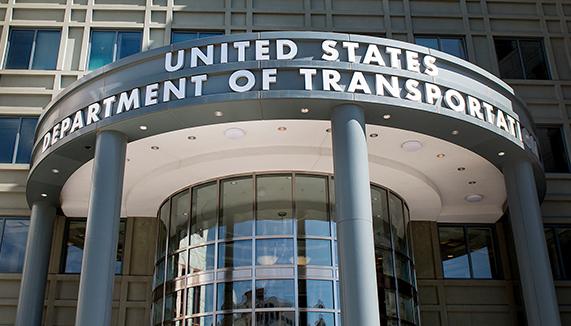Source: US DOT
Secretary of Transportation of the United States of America, Pete Buttigieg and European Commissioner for Transport, Adina Vălean, met on May 22, 2023, to discuss EU-U.S. support to Ukraine, ongoing cooperation in aviation and maritime transport, as well as issues of common interest in transportation, such as international collaboration to fight climate change and decarbonize transport.
U.S. Department of Transportation Secretary Pete Buttigieg said: “From supply chain disruptions caused by Putin’s war in Ukraine, to the impacts of global climate change, to the challenges our vital transportation workforce members face on a daily basis, the transportation systems on which the world economy depends are being tested. The EU and the U.S. share a strong commitment to working together to address the most pressing challenges facing our transportation systems. Our continuing partnership rests on the strong foundation of our transatlantic alliances, friendships, and shared values.”
Commissioner for Transport Adina Vălean said: “The health of the transatlantic economy and the global economy as a whole relies on robust transportation networks capable of safeguarding our supply chains and adapting to new challenges. The EU and U.S. are stronger working together to confront the transport disruptions Russia’s brutal war in Ukraine has created, ensuring a lifeline for Ukraine’s economy and global food security through initiatives like the EU-Ukraine Solidarity Lanes. We are also partners in confronting the challenges of decarbonising the transport sector and we stand together to determine and inspire a change for the future.”
Both also committed to enhancing collaboration on research and technology exchanges. They discussed key topics in e-mobility, including the progress in deployment of charging infrastructure. In view of the next EU-US Trade and Technology Council Ministerial meeting at the end of the month, the EU and the U.S. continue working closely with a view to aligning approaches for the Megawatt Charging System (MCS) standard for recharging heavy duty vehicles.
At the international level, they recognized the agreement achieved in the International Civil Aviation organization (ICAO) to stabilize and strengthen the Carbon Offsetting and Reduction Scheme for International Aviation (CORSIA) and welcomed the adoption of the Long-Term Aspirational Goal (LTAG) of net zero carbon emissions by 2050. They committed to collaborate in preparation for the Third Conference on Aviation and Alternative Fuels (CAAF/3) by supporting the adoption of ambitious Sustainable Aviation Fuels measures consistent with ICAO’s climate goals.
Further, the EU and U.S. noted their intentions to work together to increase the production and uptake of sustainable aviation fuels that, compared to a petroleum-based jet fuel baseline, eliminate a majority of life cycle greenhouse gas emissions.
They also committed to redoubling efforts to decarbonize shipping and aim to reach an agreement for an ambitious revision of the International Maritime Organization strategy for reduction of greenhouse gas emission from ships. They committed to work together to develop, and obtain agreement at the IMO on, effective mid-term and long-term measures to meet ambitious interim GHG goals, on the path to achieving zero lifecycle GHG emissions from international shipping by 2050 at the latest.
Building on the excellent cooperation established over the years, the EU and U.S. intend to continue to work together to foster a vibrant transatlantic aviation market, under the EU-U.S. Air Transport Agreement.
The EU and U.S. are committed to continuing and strengthening their technical and policy collaboration at the G7 transport meeting in Ise-Shima, Japan on 17-18 June.


